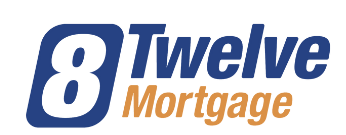Options For Your Downpayment
Your downpayment refers to the initial payment you make when buying a property through mortgage financing. A downpayment is always required when purchasing, because in Canada, lenders are only allowed to lend up to 95% of the property value, leaving you with the need to come up with at least 5% for a downpayment.
In fact, securing mortgage financing with anything less than 20% down is only made possible through mortgage default insurance. Canada has three default insurance providers: the Canadian Mortgage and Housing Corporation (CMHC), Sagen (formerly Genworth Canada), and Canada Guaranty. There is a cost for default insurance which is usually rolled into the total mortgage amount and is tiered depending on how much you put down.
As your downpayment can be a significant amount of money, you probably need a plan to put this money together. So, let’s take a look at some of the options you have to come up with a downpayment.
Money from your resources
If you’ve been saving money and have accumulated the funds and set them aside for to use for your downpayment, you'll need to prove a 90-day history of those funds. As far as the lender is concerned, this is the most straightforward way to prove a downpayment.
Any large deposits to your bank account that aren’t from payroll will require you to prove the source of funds. For example, if you recently sold a vehicle, you’ll need to provide the paperwork as proof of ownership, which corresponds to your account’s deposit. Or, if you have funds in an investment account that you’ve transferred over, statements of that transfer or account would suffice.
You have to prove the source of your downpayment funds to the lender when qualifying for a mortgage to help prevent money laundering.
Funds from the sale of another property
If you’ve recently sold a property and you’re using the proceeds of that sale as the downpayment from your new purchase, you can provide the paperwork from that transaction to substantiate your downpayment.
RRSPs through the Home Buyer’s Plan
Okay, so let’s say you don’t have all the money set aside in your savings, but you do have cash in your RRSP. Assuming you’re a first-time homebuyer, you can access the funds from your RRSP Tax-Free to use as a downpayment.
You’re able to access up to $35k individually or $70k as a couple. The money has to be paid back over the next 15 years. If you’d like more information on what this program looks like, please get in touch.
Gifted downpayment
Now, if you don’t have enough money in your savings, but you have a family member who is willing to help, they can gift you funds for your downpayment. With the increased cost of living, making it harder to save for a downpayment, receiving a gift from a family member is becoming increasingly commonplace.
Now, to qualify, the gift has to come from an immediate family member who will sign a gift letter indicating there is no schedule of repayment and that the gift doesn’t have to be repaid. Proof that the money has been deposited into your account is required through bank statements.
Gifted funds can make up part of or the entire amount of downpayment. For example, if you purchase a property for $300k and have $10k saved up, your parents can gift you the remaining $5k to make up the total 5% downpayment.
Borrowed downpayment
Suppose you aren’t fortunate enough to have a family member who can gift you a downpayment, but you have excellent credit and a high income compared to the amount you’re looking to borrow. In that case, you might qualify to borrow part or all of your downpayment.
It’s possible to borrow your downpayment as long as you include the payments in your debt service ratios. Typically this is 3% of the outstanding balance.
So there you have it, to qualify for a mortgage, you’ll need to come up with a downpayment. That can be through your resources, a property you sold, an RRSP, a gift from a family member, borrowed funds, or a combination of all five sources.
If you’d like to discuss your downpayment or anything else related to mortgage financing; it’s never too early to start the conversation about getting pre-approved for a mortgage. Please connect anytime. It would be a pleasure to work with you!
If you would like more information on how this subject matter may affect you, your mortgage or your financial future, please do not hesitate to reach out anytime.






